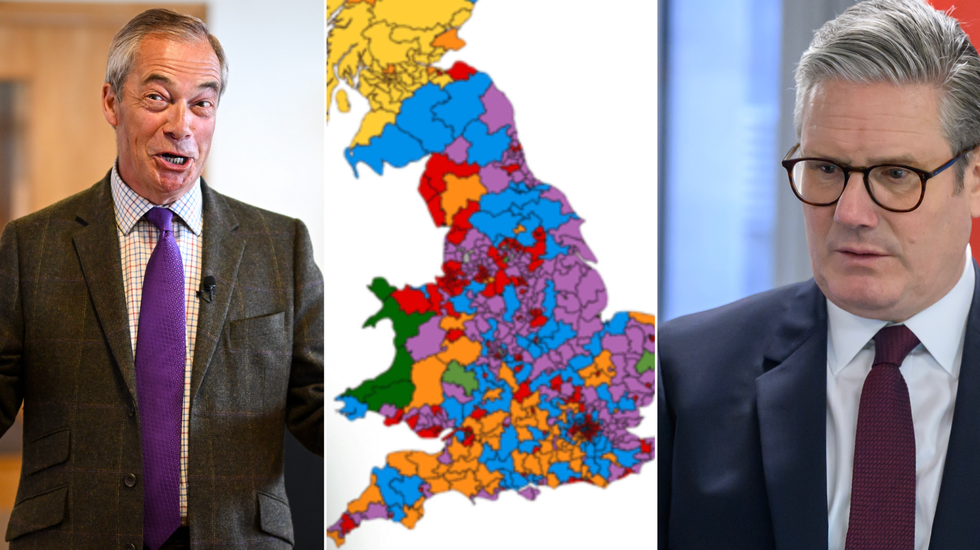Nigel Farage discusses Reform UK's latest polling and relations with Donald Trump on BBC R4
Nigel Farage's party will be buoyed by the latest polling but voting patterns have barely shifted since 2019 and leveraging grievance politics has its limits, John Curtice tells GB News
Don't Miss
Most Read
Trending on GB News
Reform UK is on track to crush Labour's 'Red Wall', but the polling belies formidable challenges ahead, according to Britain's favourite elections guru.
John Curtice's measured analysis comes as a new Survation poll has the insurgent party sweeping Labour's traditional heartland, with support in the North and Midlands surging from 18 per cent it achieved at the last general election to 30 per cent.
The Survation poll of 2,032 adults also found that 68 per cent of people polled thought Britain was "broken".
Farage will be encouraged by these insights as his party successfully galvanised disaffected Britons to get out and vote on July 4, according to research by Paul Whiteley, Professor of Government at the University of Essex.
 Is Keir Starmer finished? Elections guru reveals major plot twist as new poll has Reform crushing 'Red Wall'
Is Keir Starmer finished? Elections guru reveals major plot twist as new poll has Reform crushing 'Red Wall'Getty Images/UK Elections Map
Disillusionment with the two main parties has only gotten worse since July 4.
A survey by Ipsos UK in January found confidence in the direction of the UK had fallen back to almost the same level as before the election, with 62 per cent saying the country was heading in the wrong direction.
The new poll confirms resentment is curdling, but there's a limit to Reform's appeal in the Red Wall.
As Curtice points out, although the new Survation poll has the insurgent party increasing its vote share in Labour's traditional heartland, the working-class voters who deserted Starmer's party en masse in 2019 have not returned.
At the last General Election, Labour barely increased its support in the Red Wall. This suggests that Reform doesn't have a huge untapped base of voters to go after.
Furthermore, pedalling the politics of grievance will only get Reform so far.
An Opinium poll for The Observer found that 37 per cent of current Reform voters support the party primarily due to its hardline immigration and border control policies.
Additionally, among those considering voting for Reform, 72 per cent cited immigration as their main reason—more than double any other policy issue.
Reform's strongest pull is therefore its stance on immigration, but this attraction could wane if other parties jump in to fix this wedge issue.
LATEST MEMBERSHIP DEVELOPMENTS
- 'It's normal practice': Ex-cop makes explosive claim as Labour accused of grooming gang 'collusion'
- 'Hamas tortured me - I have some hard truths for the British lawyers challenging the UK terror designation'
- Reform UK delivers crushing blow to Labour with stunning electoral victory after scooping almost 50% of vote

Reform's strongest pull is immigration, but this attraction could wane if other parties jump in to fix this wedge issue
PAFor example, an Ipsos poll from January found a lot of Tory voters are unhappy about immigration, but when it comes to other issues, such as the economy and the NHS, voters are inclined to stick with their traditional party.
Under this scenario, if Conservatives were unhappy about the economy and the NHS but were not concerned about immigration, they would go to Labour or the Democrats.
This suggests Reform needs to build a much more coherent policy platform to appeal to the wider electorate as a one-issue party is unlikely to break the stranglehold of the two main parties.
This necessary transformation is underscored by a recent YouGov poll, which found 38 per cent of those currently considering voting for Reform at the next general election say they would also consider voting for the Conservatives.








